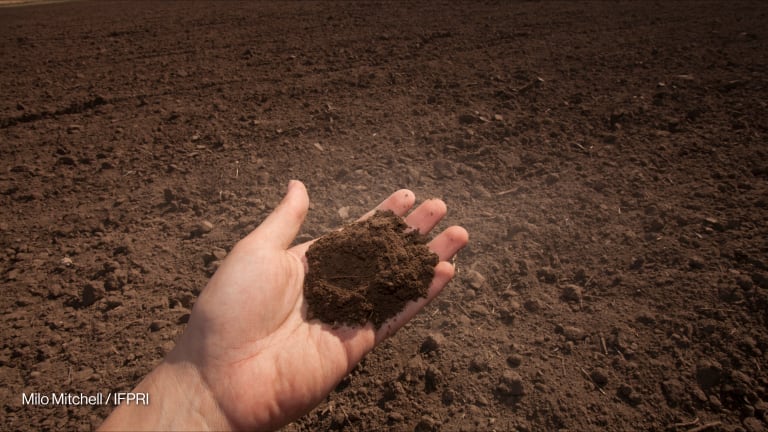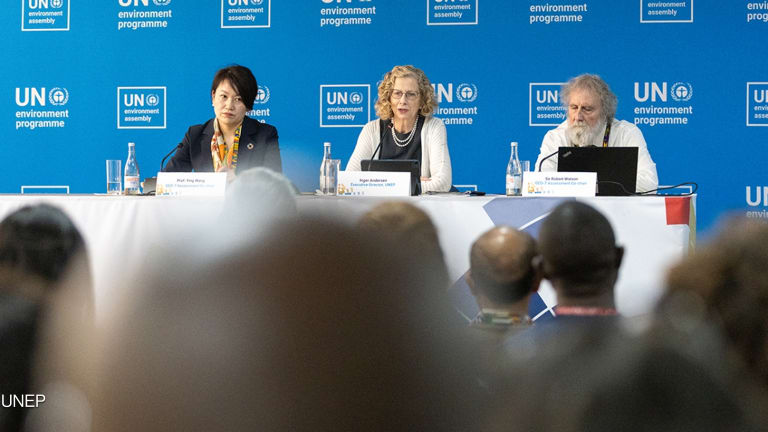
By now you’ve probably heard the chatter, seen the news stories, soaked in some of the revelry: Dec. 12, 2015, was the day history was made as the world’s governments agreed to change the course of our development by deciding how we will work together to tackle climate change. We were all elated. It was a huge moment when that gavel came down at COP21, the United Nation’s climate change summit in Paris, and the cheers erupted.
But now the dust has settled, what needs to happen to ensure the bold, ambitious promises made become a reality? What are we to make of the Paris agreement and does it even live up to the hype?
Generations are relying on us
The calls of children and young people were particularly resonant in Paris and it is their futures that were being negotiated. There is certainly a lot to celebrate in that respect. The agreement strikes a more ambitious tone than many thought possible. Agreeing to limit global warming to well below 2 degrees Celsius and striving for a 1.5 degrees Celsius limit is a victory for vulnerable countries. Even 2 C of warming would be devastating for low-lying island nations threatened by sea-level rise.
But an aspirational goal will remain just that without concrete action. The bar for cutting greenhouse gas emissions has rightly been set high. By the time today’s children reach middle age, we have to be living in a world with zero net emissions.
See more stories on the Paris climate agreement:
► Bringing affected communities into the climate change conversation
► COP21: Building peace by linking responses to climate change and security
► 3 questions raised by the Paris climate agreement
► Measuring success from COP21: Agriculture, food security and climate adaptation
► COP21: Working toward a deal for the poorest and most vulnerable
Think for a moment what that means — and what it demands of our children as they grow into adulthood. Today’s children will oversee the end of fossil fuels. That’s a big ask — and highlights the importance of climate change education.
Even if we are successful in slashing emissions, and governments return to the table with renewed and scaled-up plans, we can’t avoid some degree of climate change. The effects are already being felt, particularly by the poorest and most vulnerable. Which is why it is important that the Paris agreement contains a global goal on adaptation.
It is also of note that the agreement emphasises that adaptation should be participatory, transparent and gender sensitive, while addressing the needs of the most vulnerable. We know this is how to make adaptation most effective. At Plan International, our approaches to child-centered adaptation prioritizes the participation of vulnerable children and young people.
Who will pay for it?
The question of how adaptation will be paid for is a worry. While rich countries have reiterated their commitment to mobilize $100 billion in climate finance per year from 2020, and an intention to scale this up after 2025, the share of finance for adaptation is still in question. Unfortunately, the Paris Agreement provides little in the way of guarantees that vulnerable communities will get the long-term financial support they need to adapt to the impacts of climate change.
A final, but critical issue to reflect on in the Paris agreement, is the place of human rights. For Plan International and many of our partners, climate change is a real and urgent threat to realizing the rights of children. It is the poorest children whose rights are most threatened, yet rights-based approaches are the most effective and fair way to address climate change.
So it is encouraging that the Paris deal at least makes reference to human rights, and the rights of children specifically, but concerning that language on rights was negotiated away before the final agreement was released. That’s not how rights work, and we hope that this isn’t indicative of how countries view the role of human rights in their climate plans.
On sober reflection, the cheers were deserved. The Paris agreement is a milestone, signposting a change in our collective direction. But when I tell my children where I was on Dec. 12, 2015, I really hope we will have something to show for it.
Join the Devex community and access more in-depth analysis, breaking news and business advice — and a host of other services — on international development, humanitarian aid and global health.








